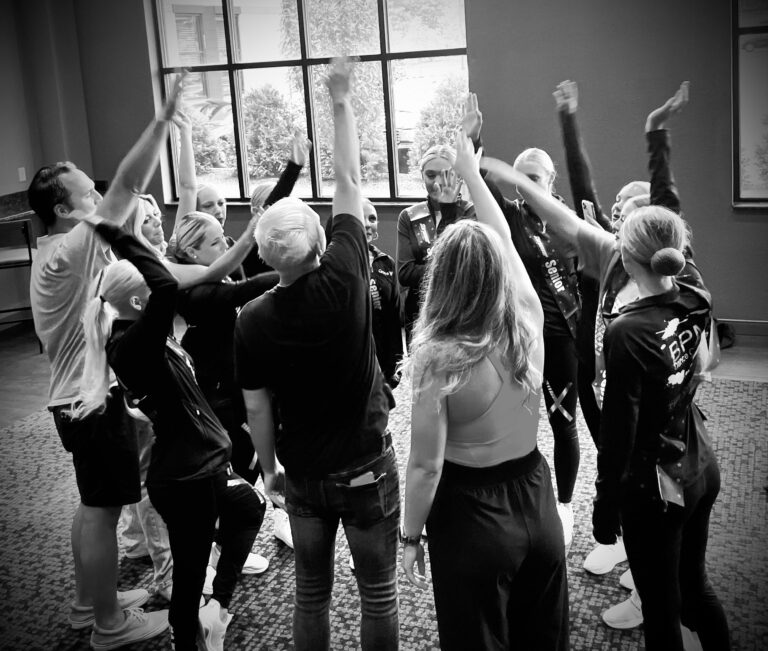
As a dance teacher, your role in your students’ training and their lives is invaluable. And if any of your dancers are on a path towards a professional career in dance, you have an even bigger responsibility on your hands. Of course, navigating this relationship isn’t always easy, and so it can be hard to decide where to draw the line when it comes to judging what support you should and shouldn’t provide as a dance teacher.
As a health, nutrition and lifestyle coach, I work with dancers who share a lot of information about their training experiences, which also highlights the ways in which some teachers are creating a supportive and uplifting environment and how others could use some help making adjustments.
So here are some important dos and don’ts to bear in mind when it comes to supporting your own dancers.
DO: Be a mentor
Create a space for open communication in dance training. This goes against the grain as so many dance environments still keep students silent. But the more you open a dialogue with your students, the better you’ll be able to support them.
If you have pre-professional or professional experiences that are relevant to what your dancers are going through, share them. Even if it means showing some vulnerability or weakness. Those struggles need to be normalized, so be open with your students and encourage them to do the same.
DON’T: Expect them to follow your path
It’s important to allow your students to find their own way in the dance world. That might mean attending summer intensives that you’re not a fan of. It might also mean switching career paths or going a less traditional route.
The reality is, there are so many ways to “make it.” So let your students define success for themselves.
DO: Exemplify a balanced relationship to food and your body
To lower the risk of eating disorders in your students, it’s essential that you avoid making comments that moralize food. It’s OK for them to enjoy all parts of their Thanksgiving dinner and holiday desserts. And those Christmas cookies aren’t going to change their ability to perform well in The Nutcracker either. If you want to give them advice on how they can spend their time away from dancing, encourage them to rest.
Additionally, if you’re teaching for multiple hours, you should have a meal break and so should your students. Encourage them to bring balanced and sufficient meals to help them get through busy dancing days. It’s also OK, and, in fact, beneficial, for your dancers to see you eating during breaks as well.
DON’T: Give nutrition advice or push your body insecurities onto them
Perhaps you may not have a positive body image yourself. In fact, I work with a lot of former professional dancers and teachers who are working through the unhelpful feedback they received around their bodies in dance. But as you work to improve your relationship with your own body, try not to transfer your struggles onto your dancers.
Body-related comments, even if well intentioned, are not helpful either. This goes for food advice and nutrition tips as well. Don’t share the latest diet fads or things you’ve tried or are trying. Even if you’ve found success on a certain eating plan, it doesn’t mean it’s the best approach for your students.
DO: Refer your dancers out to trusted support people
Your students trust you. And if they come to you for help with nutrition, an injury or a mental health struggle, it’s important that you have many different people to refer them to. Thankfully, many health coaches, dietitians, personal trainers, physical therapists and mental health professionals are now available to speak with virtually.
Find professionals with a deep connection to dance, and make sure your list of referrals has a plethora of options so that each dancer can find someone whose approach resonates with them.
DON’T: Make it your job to heal their injuries or dictate who they can work with for outside support
In my experience, dancers find the greatest success when they’re aligned with whomever they’re working with for outside support. Provide the references, but let the ultimate decision be up to the student and their parents. Follow up simply to ensure they’re getting the support they need.
Remember: You have the power to steer your dancers’ journeys in a positive direction. And you can help them find the path that’s best for them and provide empathy, encouragement and mutual respect along the way. This will allow them to discover their true potential. And they will take that with them wherever they go.






